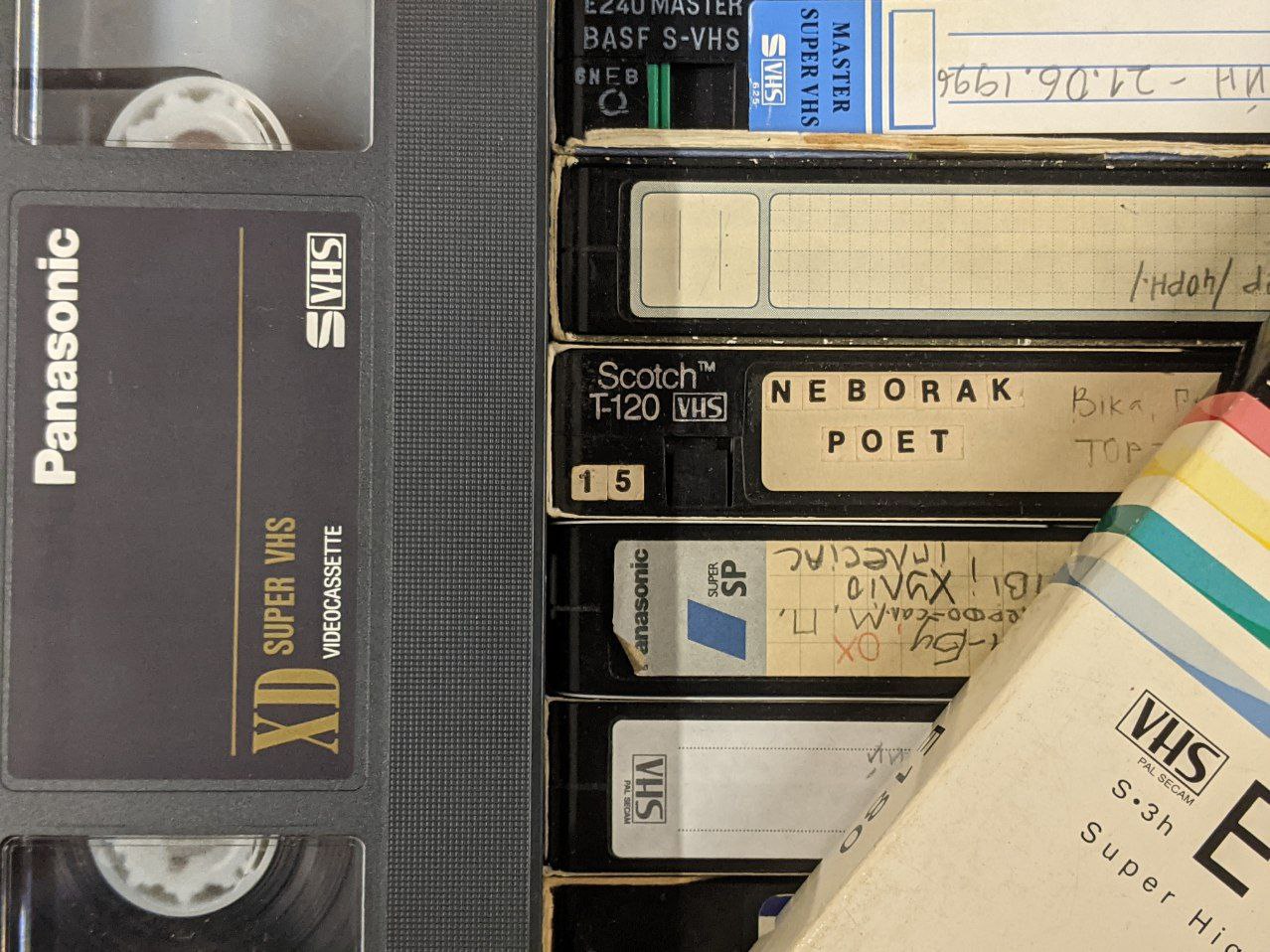Center for Urban History Digitized Victor Neborak's Video Archive
15.05.2024
The Urban Media Archive of the Center for Urban History has digitized the video archive of the writer Viktor Neborak. It contains more than 150 hours of footage from literary events, festivals, performances, and concerts, mainly in the second half of the 1990s. The footage also captures key figures of Ukrainian culture, the period of the fall of the USSR, the rise of independence, and the phenomena and discourses that marked this time.
Viktor Neborak's video archive is one of the largest archives of the literary and artistic 90s.
"What characterizes this archive is that it contains mostly video recordings. Literature and literary environments are usually studied primarily through text, whereas in this case, we have a rather extensive list of documentation of events related to literature and art in general, which is no less interesting to work with. The very fact of the existence of such an archive is important evidence of how artistic environments get acquainted with and master the new audiovisual media that became affordable at the turn of the 1980s and 1990s. The video camera became a new tool in the hands of artists and, in some cases, even opened the way to television and a large audience. Even though the archive covers relatively recent events, the technology of VHS tapes is quite fragile, so it's been very important that we managed to work on it now because some of the recordings have been significantly damaged by time," says Oleksandr Makhanets, an archivist and researcher at the Center.
Work on digitizing the materials began in late 2021, and the main phase was completed before the Russian full-scale invasion. In 2024, the Center for Urban History is ready to publicly announce that Viktor Neborak's digitized video archive has become part of the Urban Media Archive and now enriches the collection on artistic communities of the 1990s.
The largest part of the archive is video recordings of a series of literary evenings called "Tretie tysiacholittia" ("The Third Millennium" eng.), which were organized and moderated on a monthly basis by Viktor Neborak at the Museum of Ethnography from 1995 to 2000. These were hour-long conversations and readings with writers, translators, and literary critics, including Ivan Malkovych, Ihor Kalynets, Natalka Bilotserkivets, Ihor Rymaruk, Yuri Andrukhovych, Andriy Sodomora, Solomiya Pavlychko, George Grabovych, Valeriy Shevchuk, Yuri Tarnavskyi, and dozens of other people who create the essence of contemporary Ukrainian culture.
"It is extremely important for our family to record and archive Ukrainian culture. When I was a child, my father often said that we should be able to listen to the voices of Yevhen Pluzhnyk, Mykhailo Semenko, Mykola Zerov, and many others — there were technical possibilities for this, but in fact, we could only imagine their voices," says Viktor's daughter Bohdana, who initiated the digitization of the materials. "Today, it seems mistaken that the last decades are well documented: many records, even from the 80s, 90s, and 00s, have been lost. We would like the materials from the family archive to be preserved and continue to work."
The materials in the archive are described and systematized by literary scholar Ihor Kotyk, who, during his student years, had the opportunity to attend events organized and hosted by Viktor Neborak. "I was lucky that Neborak held regular literary meetings during my years at the university. Thanks to these events organized by Neborak, we had the opportunity to see and listen live to relevant literary proposals from representatives of different generations, individuals with different artistic outlooks: Yuriy Andrukhovych and Valeriy Shevchuk, Yuriy Tarnavsky and Taras Fedyuk, Petro Midyanka and Michael Naydan. The archive contains records of meetings with prose writers, translators, and literary critics. There are even some specific events, such as a buffet on the occasion of the wedding of Neborak and Yaryna Senchyshyn. By the way, there is a very interesting display of Heorhiy Gongadze, a figure who is rather associated with politics than poetry."
Some materials from the archive became a part of the exhibition "PROmeneVist" dedicated to the sixtieth anniversary of the birth of the poet Nazar Honchar.
The digitized materials of Viktor Neborak's archive are available in the library of the Center for Urban History.

